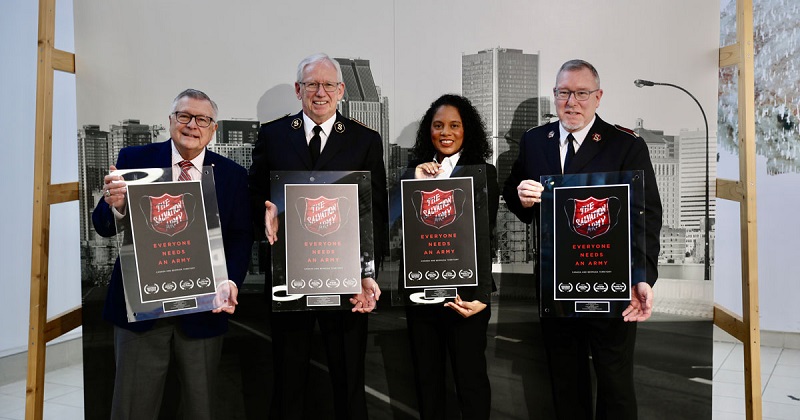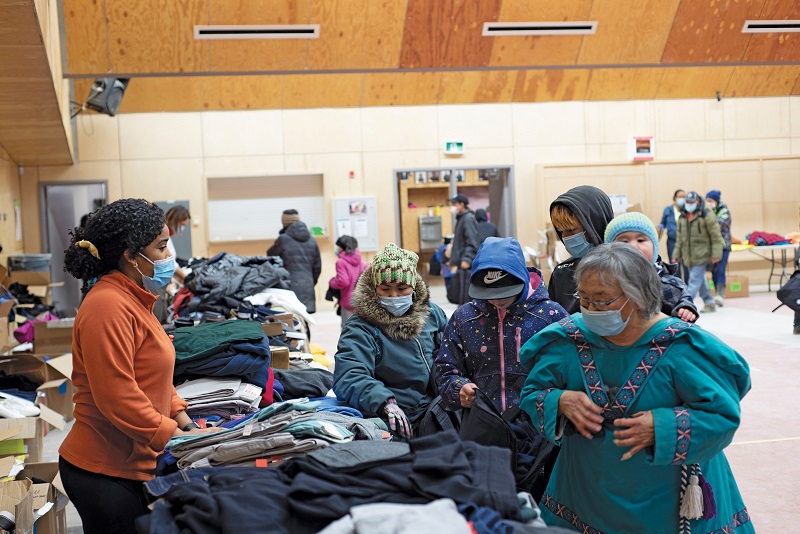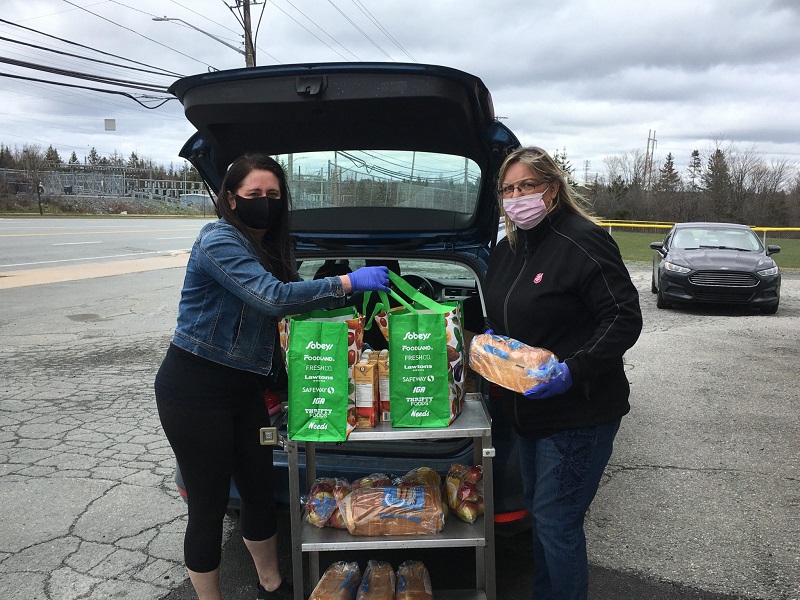Salvation Army Community Kitchen Keeps Individuals with Developmental Disabilities Safe

COVID-19 changed how The Salvation Army’s Lawson Ministries in Hamilton supports individuals with developmental disabilities who live in their own apartments. To ensure vulnerable, at-risk people stay safe, nutritious meals are cooked in an industrial kitchen, packed and delivered to their homes.
“COVID-19 hit us quick,” says Deanna Finch-Smith, executive director. “We wanted to reduce the risk of contamination and transmission of the disease, so we began to take meals regularly into the homes of those whom we serve. A generous grant from Agriculture Canada made it possible for us to support the initiative.”
“We are lucky to have The Salvation Army”
Lawson Ministries provides services in Hamilton, Ont., which include residential supports, enhancing literacy skills, and tailored employment services.
“We offer a wide range of services,” says Deanna. “Residentially, we support 90 people, and our day program serves more than 200 people with developmental disabilities that may include dual diagnoses and psychiatric issues. Our youngest participant is 18, and our oldest is 84.”
Before COVID-19, the residential program assisted people with shopping and cooking in their own homes. Now, the community kitchen ensures that those who are vulnerable avoid grocery shopping and stay safe.
“The meals are fantastic,” says Jason. “I look forward each week to getting them. Keep them coming!”
The community kitchen delivers two home-made meals twice a week. Program participants who don’t receive residential support also access the food delivery program. In any case, the visits, which comply with COVID-19 restrictions, are not only keeping people safe and healthy, but improve feelings of isolation.
“Without this program, our participants would be in the community more often”
“We are lucky to have The Salvation Army,” says Alex. “The meals and desserts are awesome. I’ve eaten things I never have before.”
“Without this program, our participants would be in the community more often,” says Deanna. “Our clients don’t understand what a pandemic is or how it can impact them. With limited social skills, they would be terrified if they were told not to touch something.”
With COVID-19 protocols somewhat lifted, The Salvation Army continues its meal delivery service. The hope is that when programs restart, clients can learn from our chefs and set goals of working in restaurants or kitchens.
“The meals are so good,” says Marcel. “I want to learn some of the recipes so I can be a chef someday.”
By Linda Leigh




